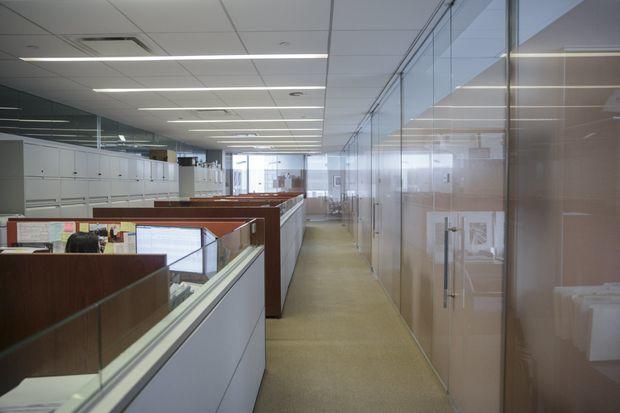Six Months After The Pandemic Started: Manhattan Offices Are Only 10% Full
A vibrant economic recovery of America's largest city that is New York City, depends on the return of office workers; otherwise, the absence of white-collar folks means a painful recovery is ahead.
As of Sept. 18, about six months after the virus pandemic began, only 10% of Manhattan office workers were back, according to The Wall Street Journal, quoting commercial real estate services and investment firm CBRE Group Inc.'s latest report. That represents a slight uptick from the 6% to 8% level seen in July, a month after strict social distancing measures were eased because of the virus pandemic.
Months and months of empty office buildings across the borough paralyzed the local economy, which resulted in a collapse in consumption as workers stayed home. The spillover effect has since led to a collapse in small businesses across the area.
CBRE's report noted on a national level, about a quarter of office workers returned to their desks in September. The figure was higher in certain metropolitan areas such as Dallas at 40% and the Los Angeles metro area at 32%. The reoccupation rate across NYC is 32%.
The low rate of office workers returning to Manhattan is a significant disappointment for anyone who remotely thought NYC's economic recovery would resemble a "V" by the fourth quarter of 2020.
With new clusters of cases emerging in Brooklyn and NYC's northern suburbs in recent days, new fears of restrictions to businesses and schools could be nearing.
Already, mobility trends around the city, according to Apple's Mobility Trends Tracker, shows driving, walking, and transit is slumping as the virus cases are increasing in the city.

New virus developments come as NYC prepares this week to reopen public schools and permit restaurants to allow some indoor dining. A surge in the virus and the slow return to the workplace suggests a vibrant recovery in the real economy won't be seen this year. A direct consequence of the virus-induced downturn is the implosion of commercial real estate woes, an exodus of city-dwellers to suburbs, jump in murders and homelessness, and the collapse of small businesses.
So again, remind us how the real economy is in a "V" recovery?

Aucun commentaire:
Enregistrer un commentaire